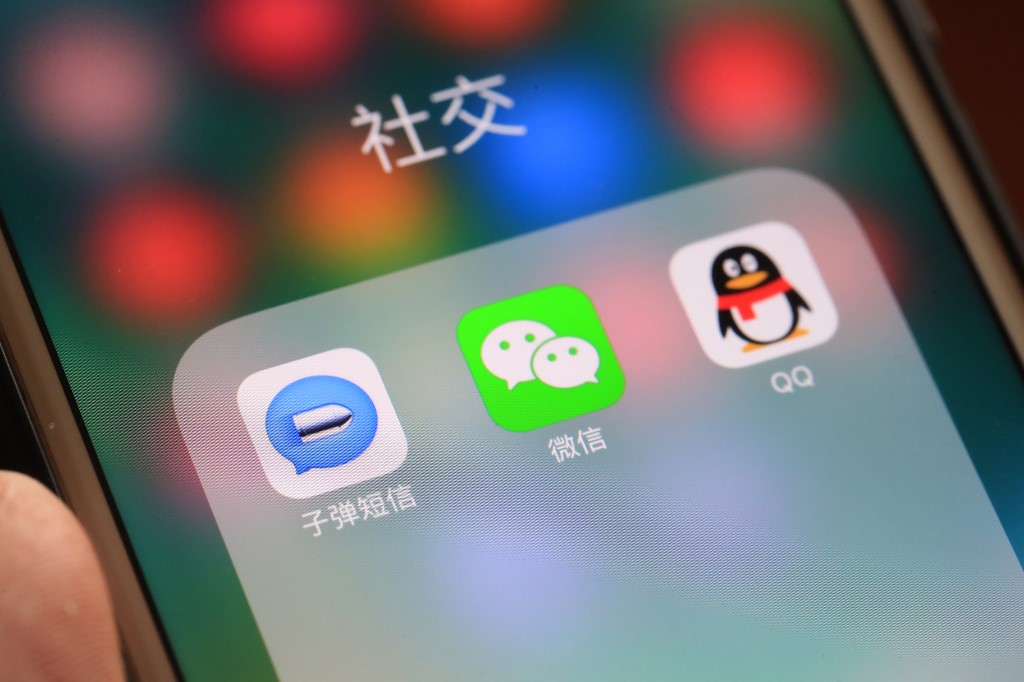(ATF) Multiple WeChat users complained this week that company data on individuals became widely available to other users, the Beijing News reported on Thursday May 21.
A WeChat spokesperson blamed the incident on fraudsters and hackers who allegedly created false data reports which were spread amongst users. The incident has raised concerns among users about the safety of their personal information.
This could be a boost for Alipay, which is eating into WeChat’s user base.
WeChat told ATF: “We launched Weixin Pay Scores (?????) back in January 2019. It is an optional service for users of Weixin Pay that aims to drive loyalty to merchants. The service is only available in Mainland China and had 100 million users as of January 2020.”
WeChat is owned by the Shenzhen Tencent Computer System Co Ltd, which was established in November 1998. Co-founded by five founders – Ma Huateng, Zhang Zhidong, Xu Chenye, Chen Yidan and Zeng Liqing – the group has morphed into the main form of communication for Chinese citizens.
Tencent’s diversified services include social and communication services QQ and WeChat, WeChat Pay, social networking platform QQ space, the QQ game platform under Tencent Games, portal Tencent.com, plus Tencent news client and online video service Tencent Video.
Tencent’s extraordinary growth
In the late 1990s Tencent was not considered a major player like huge portals such as Sina.com, Sohu.com and Etang.com, which fought a massive battle to be top dog in China. This has long since been settled – Sina won that battle when one of the founders married the daughter of then-president Hu Jintao. And though unstated, it was obvious that Sina had become a major state-run media platform, as it was allowed to keeps its technological innovative edge, and to launch Weibo, which is like Twitter.
But Tencent had gone for the long play – its QQ chat platform was aimed more at kids with cartoonish and funny games, and had a non-adult approach. Hundreds of millions of kids who grew up using QQ made an almost seamless transition to WeChat. You can still log into WeChat with QQ accounts, at least until this week.
Many foreign venture capitalists and investors bet cash on Tencent, as it seemed less likely to become part of the Chinese government’s ‘soft-power’ media networks. But most exited when it became clear that Tencent was heavily embedded in China’s government apparatus – and, of course, they don’t want foreigners nosing around the office or boardroom table. If Tencent had refused to cooperate with its government handlers its business would have been throttled.
China runs its own intranet, but leakers have estimated that around 9 million people are employed to “maintain social order” on the internet. They even have their own song. And besides the official full-time employees, China maintains an unknown but vast army of trolls, paid 0.5 yuan per word, which has led to them being known as the “5c army”. These individuals try to guide internet discussions, as well as attack and report any anti-government or anti-nationalist sentiment; they dox users and families deemed unpatriotic by using a ‘human search engine’ to hunt people down.
But online anonymity is almost impossible in China as real name registration is now mandatory for most online activity. Chinese intellectuals, subversives or the just plain curious use a virtual private network or VPN service.
VPNs are illegal in China, but have been tolerated except during occasional clampdowns, under the logic that these users are mainly middle class and business people who need access to services or information from outside the country. But if VPNs saw mass usage among common internet users, reading subversive propaganda from Taiwan’s free press, for instance, this would likely upset the social order, and be shut down aggressively. This has already happened in some parts of China, such as restive western provinces where users have been jailed for having WhatsApp on their phones rather than WeChat.
This move illustrates a new homogeneity under the current leadership. Though China is very diverse there is a push to create a mono culture. Controlling individuals’ credit rating, cash and friendships is a big step in that direction, and currently Tencent is the major player in this arena.
Listing on Hong Kong exchange, now a global colossus
In 2004, Tencent was publicly listed on the main board of the Hong Kong Stock Exchange (stock code 00700). The chairman and CEO of the board of directors is Ma Huateng.
On June 20, 2018, World Brand Lab released an analysis report on “China’s 500 Most Valuable Brands” in Beijing in 2018. Tencent ranked second. In December 2018, the “2018 World Top 500 Brands” compiled by the World Brand Lab was announced and Tencent ranked 39th internationally.
In July last year, the 2019 Fortune Global 500 was released, and it ranked Tencent 237th. On December 18, 2019, the People’s Daily published the China Brand Development Index 100 list, and Tencent ranked 4th.
So, how did a startup in 1998 become a credit and social platform for the majority of the Chinese population? It really started with a penguin, the cute logo of QQ which was the local alternative to Microsoft messenger. As phones became more sophisticated, WeChat was launched – and became a kind of Chinese “morph” between Facebook and WhatsApp.
As no US-based social media is easily available in China, the government encourages Chinese firms to replicate them but with a Chinese twist. And once a Chinese tech company grows beyond a certain size, government officials play a role in the firm, be it approving technology and sharing data. Indeed, all big Chinese tech firms will have one or several police stations in their physical office.
China has strict security at TV and radio stations with guards with machine guns, so they will certainly guard these new tech companies just as fiercely, though in a more low key fashion.
























